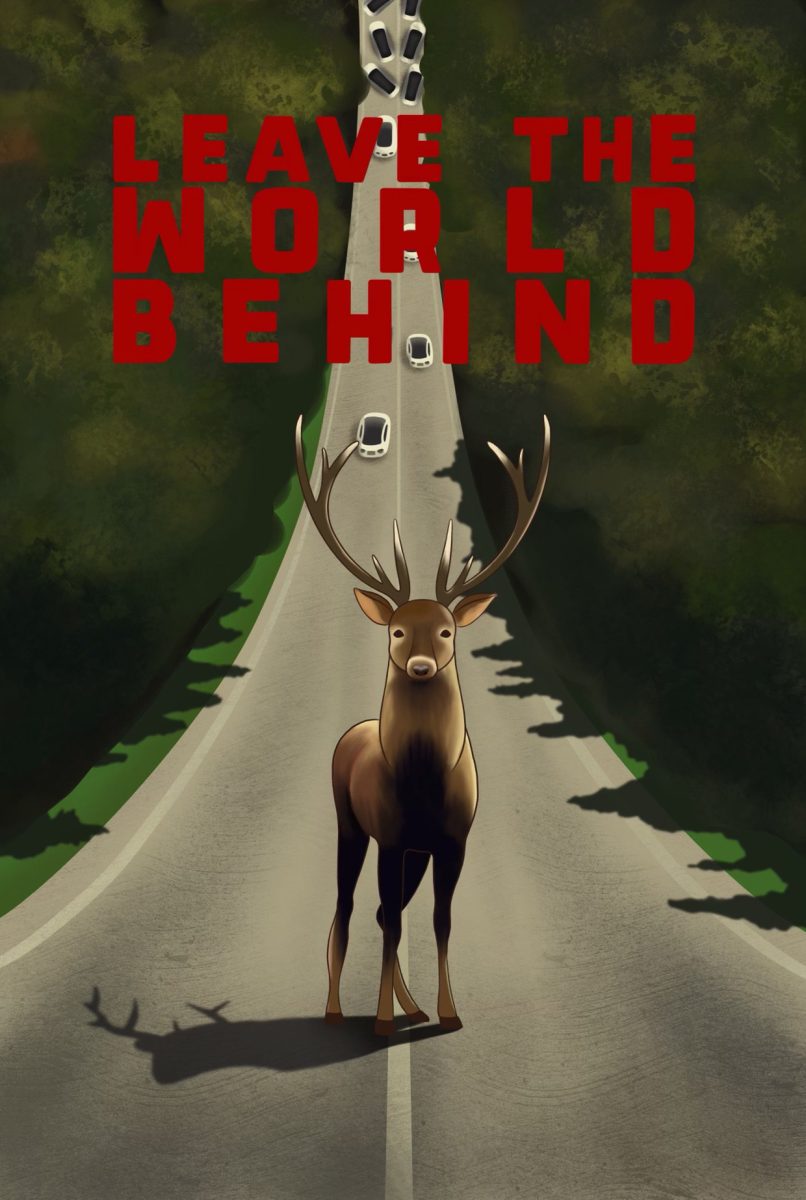“But it’s almost … nostalgic for a time that never existed, you know?” – Ruth Scott
Imagine that you and your family are on a typical vacation. You intend to rot on the couch, doom-scrolling through Instagram reels like always. Yet this idyll situation is interrupted by a sound you cannot place. You look out the window to see smoke rising over the treetops. You don’t know who dropped the bomb. You will never know. That thought terrifies you.
This unpleasant scenario reflects the plight of the main characters in “Leave the World Behind” (2023). A stereotypical American family consisting of parents Amanda (Julia Roberts) and Clay (Ethan Hawke) have rented a summer home from G.H. (Mahershala Ali). Their vacation is interrupted by a series of increasingly disturbing events. From an oil tanker running ashore to drones dropping leaflets reading “Death to America,” it seems that the world around them is slowly falling apart and the audience is just along for the ride.
Aptly named, “Leave the World Behind” is a visceral experience. I have seen many apocalypse movies but none have left me with weeks of lasting anxiety the way this film has. Although “Leave the World Behind” has been slammed back and forth by audiences and critics alike, I think it is worth at least one watch, if only to spice up your Letterboxd diary.
The film’s content does start to resemble an unhinged Reddit post about halfway through – particularly when Julia Roberts utters something along the lines of “the animals are trying to tell us something” after a jarring standoff with a massive herd of deer. Yet the stunning performances carry through some of the more cumbersome dialogue. The film is a true masterclass in cinematography. Director Sam Esmail is exceptional at keeping his audience on edge. It is easy to theorize about the vibrant colors. The film’s reference to racial tension in the U.S and calls for civic unity appears in the prevalence of blue and red on screen. The eerily symmetrical framing makes the characters’ actions seem blatantly predetermined by some shady higher power. The precise camerawork contrasts the film’s core messaging that no one is in control – contributing to the viewer’s heightened sense of dread.
Although a bit defeatist, the film reminds the viewer why Hollywood endures. We rewatch the classics because we take comfort in the formula. In “Casablanca” (1942), Rick does not end up with the girl but still leaves satisfied, hooking the viewers on the promise that his story will have a happy ending. The story is neat and predictable, a luxury that “Leave the World Behind” tells us we will never be afforded.
“Leave the World Behind” might not be my favorite watch due to its awkward script, but it resembles reality. Depicting the upper-middle-class summer home fantasy, it feels twisted even before the first bomb drops.




